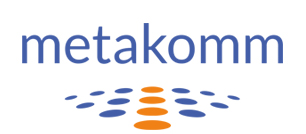Team development
In our opinion, a successful team is a team whose members are optimally put together in terms of skills, motivation, skills and characteristics. They complement each other and achieve their individual performance together more than the total performance. Their roles, tasks and responsibilities are clearly distributed and accepted by everyone. There is an open, trusting atmosphere, good communication and a functioning interaction between management and team members. The team reacts to requirements that bring changes with them in an organized manner and then adapts optimally. And last but not least: A successful team achieves its goals!
If this is not (yet) the case in your team, we offer a number of different team development options.
Team development measures offer the opportunity to meet each other in an unusual way away from everyday life and to reflect on the cooperation.
Common topics are the understanding of leadership, understanding of tasks, clarification of roles and responsibilities, deepening of relationships, analysis of strengths and weaknesses, intensive feedback, clarification of conflicts, communication, team rules, etc.
In order to develop or improve cooperation in teams, we offer a number of options such as:
- Workshops to analyze and improve cooperation
- Training on collaboration in (virtual) teams
- Team building measures
- Team training
- Team coaching
- Conflict mediation
- Indoor/outdoor measures
We offer our measures both face-to-face and virtually.




